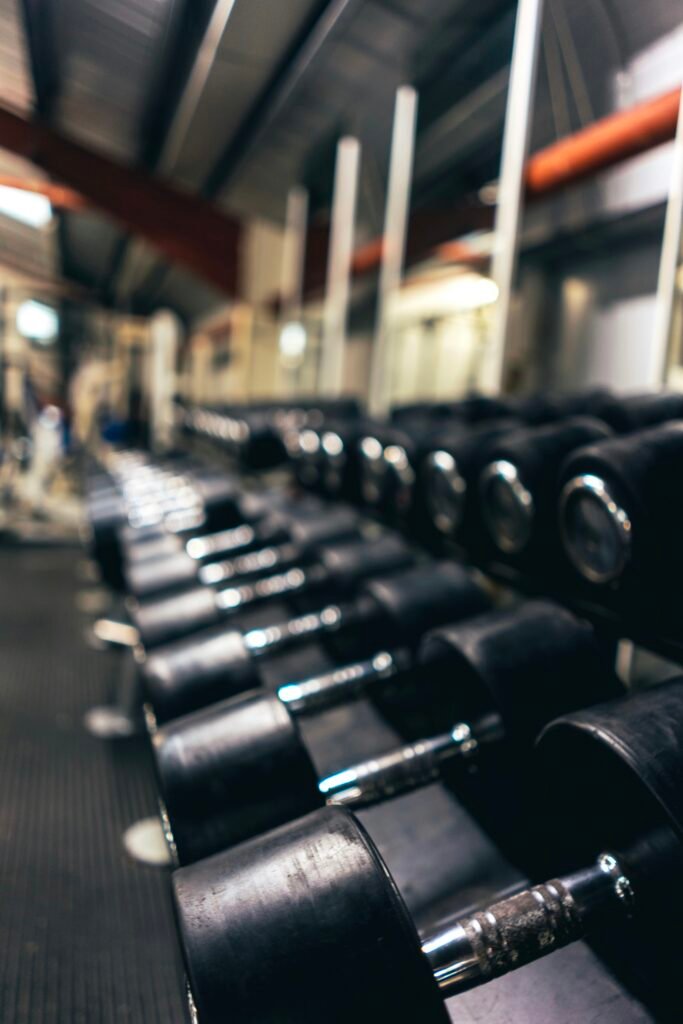Are you looking to improve your physical health? Regular exercise may be the answer you’ve been searching for. Engaging in physical activity on a consistent basis has numerous positive effects on your overall well-being. From reducing the risk of chronic diseases to improving cardiovascular health, regular exercise can have a transformative impact on your body. Whether you prefer jogging, swimming, or participating in team sports, incorporating exercise into your daily routine can lead to a healthier and happier you. So, let’s explore the multitude of benefits that regular exercise can bring to your physical health.

This image is property of images.unsplash.com.
Improves cardiovascular health
Reduces the risk of heart disease
Regular exercise is one of the most effective ways to reduce the risk of heart disease. When you engage in physical activity, your heart gets stronger and more efficient at pumping blood throughout your body. This helps to lower your blood pressure, reduce cholesterol levels, and prevent the buildup of plaque in your arteries. By consistently exercising, you can significantly decrease the risk of developing heart disease and improve the overall health of your cardiovascular system.
Lowers blood pressure
High blood pressure, also known as hypertension, is a common health issue that can lead to serious heart problems if left untreated. However, engaging in regular exercise can help to lower your blood pressure and maintain it at a healthy level. Physical activity stimulates blood flow, which helps to relax the walls of your blood vessels and decrease the resistance to blood flow. This, in turn, reduces the strain on your heart and lowers your blood pressure.
Improves blood circulation
Regular exercise improves blood circulation, which is essential for maintaining overall cardiovascular health. As you exercise, your heart works harder to pump blood to your muscles, increasing the flow of oxygen and nutrients throughout your body. This improved blood circulation can lower the risk of developing conditions such as varicose veins, deep vein thrombosis, and peripheral artery disease. It also enhances the delivery of oxygen and nutrients to your organs and tissues, promoting better overall health.
Aids in weight management
Helps burn calories and fat
One of the most well-known benefits of regular exercise is its ability to help you burn calories and fat. When you engage in physical activities such as running, cycling, or swimming, you increase your energy expenditure. This leads to a calorie deficit, which means your body burns more calories than it consumes. Over time, this can result in weight loss and a reduction in body fat. By incorporating exercise into your daily routine, you can effectively manage your weight and achieve a healthier body composition.
Increases metabolism
Regular exercise not only burns calories during your workout but also increases your metabolism, which is the rate at which your body burns calories at rest. Engaging in activities such as strength training or high-intensity interval training (HIIT) can boost your metabolism, allowing you to burn more calories even when you’re not exercising. This increased metabolic rate can help you maintain a healthy weight and prevent weight gain in the long term.
Promotes weight loss
When it comes to weight loss, exercise is a crucial component. By combining regular physical activity with a balanced diet, you can create a calorie deficit and achieve sustainable weight loss. Exercise not only helps you burn calories but also preserves lean muscle mass, which is essential for maintaining a healthy metabolism. In addition, regular exercise can improve your body’s ability to use insulin and regulate blood sugar levels, which is beneficial for individuals with diabetes or those at risk of developing it.

This image is property of images.unsplash.com.
Strengthens muscles and bones
Increases muscle mass and strength
Regular exercise, particularly resistance training, is vital for increasing muscle mass and strength. When you engage in activities that challenge your muscles, such as lifting weights or using resistance bands, you create microscopic damage to the muscle fibers. As your body repairs and rebuilds these fibers, they become stronger and larger. This not only enhances your physical appearance but also improves your overall functional strength and ability to perform daily tasks with ease.
Improves bone density
Regular weight-bearing exercises, such as walking, jogging, or dancing, can help to improve bone density and reduce the risk of osteoporosis. As you engage in these activities, the mechanical stress placed on your bones stimulates them to become stronger and denser. This is especially important as you age, as bone density naturally decreases, making you more prone to fractures. By consistently exercising, you can maintain and improve your bone health, ensuring that your skeletal system remains strong and resilient.
Reduces the risk of osteoporosis
Osteoporosis is a condition characterized by low bone mass and deterioration of bone tissue, leading to fragile and brittle bones. Regular exercise can significantly reduce the risk of developing osteoporosis, especially in women who are more prone to this condition. Weight-bearing exercises, such as weightlifting or dancing, stimulate the production of new bone tissue and increase bone density. This helps to strengthen your bones and reduce the likelihood of fractures or bone-related injuries.
Enhances flexibility and mobility
Improves joint range of motion
Regular exercise plays a crucial role in maintaining and improving joint flexibility. Activities such as yoga, Pilates, or stretching exercises help to increase the range of motion in your joints, allowing you to move more freely and perform daily tasks with ease. Improved joint flexibility can also prevent injuries and reduce the risk of conditions such as arthritis.
Increases flexibility
Flexibility refers to the ability of your muscles and tendons to stretch and move through a full range of motion. Incorporating exercises that target flexibility, such as yoga or stretching routines, into your regular exercise regimen can help to increase your overall flexibility. This not only improves your athletic performance but also enhances your daily activities by reducing muscle stiffness and improving posture.
Enhances balance and coordination
Regular exercise, particularly activities that challenge your balance and coordination, can improve your overall stability and coordination skills. Exercises like tai chi, balance exercises, or dance classes can enhance your ability to control your body’s movements and maintain balance, reducing the risk of falls and injuries. This is particularly beneficial for older adults who may experience a decline in balance and coordination due to age-related changes.

This image is property of images.unsplash.com.
Boosts immune system
Reduces the risk of chronic diseases
Engaging in regular exercise has been shown to reduce the risk of chronic diseases such as heart disease, type 2 diabetes, and certain types of cancer. Regular physical activity helps to improve the function of your immune system, making it more effective in fighting off infections and diseases. By reducing the risk of chronic diseases, exercise contributes to overall better health and well-being.
Improves immune function
Exercise stimulates the production of antibodies and white blood cells, which are essential for fighting off infections and viruses. By regularly engaging in physical activity, you can enhance the function of your immune system and improve your body’s ability to defend against illnesses. This can result in fewer sick days and a lower chance of being affected by common infections such as the flu or cold.
Enhances the body’s ability to fight infections
Regular exercise has been shown to enhance the body’s immune response to infections. When you exercise, your body temperature rises, which can help to destroy harmful bacteria and viruses. Additionally, exercise promotes the circulation of immune cells, allowing them to move more efficiently through your body and target harmful pathogens. By consistently engaging in physical activity, you can strengthen your immune system and decrease the likelihood of falling ill.
Improves respiratory health
Increases lung capacity
Regular exercise can significantly increase lung capacity, which refers to the amount of air your lungs can hold. When you engage in activities that elevate your heart rate and breathing, such as running or cycling, you challenge your lungs to work harder and become more efficient. Over time, this leads to improvements in lung function and the ability to take in more oxygen with each breath. Increased lung capacity can benefit individuals with respiratory conditions such as asthma or chronic obstructive pulmonary disease (COPD).
Enhances respiratory efficiency
Regular exercise improves the efficiency of your respiratory system, allowing you to take in oxygen more easily and efficiently. When you engage in physical activity, your breathing rate increases, which helps to strengthen your respiratory muscles and improve their coordination. This results in a more effective exchange of oxygen and carbon dioxide in your lungs, ensuring that your body receives the oxygen it needs to function optimally.
Improves breathing
For individuals with respiratory conditions such as asthma, regular exercise can help to improve breathing and reduce symptoms. Physical activity can strengthen the muscles involved in breathing, making breathing easier and more efficient. It can also help to reduce inflammation in the airways, which is a common issue in individuals with asthma. By incorporating regular exercise into your routine, you can experience improved breathing and better respiratory health overall.
Enhances mental health
Reduces symptoms of depression and anxiety
Regular exercise has been shown to have a significant impact on mental health, particularly in reducing symptoms of depression and anxiety. Physical activity stimulates the release of endorphins, which are natural mood-boosting chemicals in the brain. These endorphins help to improve your mood, reduce feelings of depression, and alleviate anxiety. Additionally, exercise provides a distraction from negative thoughts and promotes a sense of achievement and self-confidence.
Improves mood and self-esteem
Engaging in regular exercise can improve your overall mood and increase feelings of happiness and well-being. Physical activity stimulates the release of neurotransmitters such as serotonin and dopamine, which are associated with improved mood and emotional well-being. By consistently exercising, you can experience an uplifted mood, increased self-esteem, and a more positive outlook on life.
Enhances cognitive function
Regular exercise has been shown to enhance cognitive function and improve various aspects of brain health. Physical activity increases blood flow to the brain, which delivers oxygen and nutrients necessary for optimal brain function. Exercise also stimulates the production of neurotrophic factors, which promote the growth of new neurons and strengthen existing connections in the brain. This can result in improved memory, attention, and overall cognitive performance.
Promotes better sleep
Improves sleep quality and duration
Regular exercise can have a positive impact on sleep quality and duration. Engaging in physical activity helps to regulate your body’s natural circadian rhythm, which is responsible for controlling your sleep-wake cycle. Additionally, exercise can reduce symptoms of insomnia and promote a deeper and more restorative sleep. By incorporating exercise into your routine, you can experience improved sleep quality, wake up feeling refreshed, and have more energy throughout the day.
Helps regulate sleep patterns
In addition to improving sleep quality, regular exercise can also help to regulate sleep patterns. By creating a consistent exercise routine and establishing a regular sleep schedule, you can synchronize your body’s internal clock and promote a more regular sleep-wake cycle. This can be particularly beneficial for individuals who struggle with irregular sleep patterns or are affected by jet lag or shift work.
Reduces insomnia symptoms
Insomnia is a common sleep disorder characterized by difficulty falling asleep, staying asleep, or waking up too early. Regular exercise has been shown to be an effective non-pharmacological treatment for insomnia. By engaging in physical activity, you can reduce anxiety and relieve stress, which are common factors that contribute to insomnia. Exercise also tires your body physically, making it easier to fall asleep and stay asleep throughout the night.
Increases energy levels
Boosts physical and mental energy
Regular exercise has the remarkable ability to increase both physical and mental energy levels. When you engage in physical activity, your body releases endorphins, which are natural energy boosters. These endorphins trigger positive feelings and enhance your overall sense of vitality. Additionally, exercise improves blood circulation and oxygen delivery throughout your body, providing a fresh supply of energy to your muscles and brain.
Reduces fatigue and lethargy
If you often find yourself feeling tired and sluggish, incorporating regular exercise into your routine can help combat fatigue and boost your energy levels. Exercise increases your heart rate and improves your cardiovascular fitness, allowing your body to transport oxygen more efficiently. This helps to combat feelings of lethargy and promotes a sustained increase in energy throughout the day. By making exercise a habit, you can banish fatigue and experience greater productivity and alertness.
Improves overall vitality
Regular exercise not only increases energy levels but also improves overall vitality. When you engage in physical activity, your body works more efficiently, and your stamina increases. This results in improved endurance and the ability to perform daily tasks with ease. Whether it’s climbing stairs, carrying groceries, or participating in recreational activities, regular exercise enhances your vitality and allows you to embrace an active and fulfilling lifestyle.
Enhances longevity
Reduces the risk of chronic diseases
Regular exercise has been consistently shown to reduce the risk of chronic diseases, such as heart disease, diabetes, and certain cancers. By incorporating physical activity into your daily routine, you can help prevent the development of these diseases and increase your chances of living a longer, healthier life. Exercise improves cardiovascular health, maintains a healthy weight, and supports optimal organ function, all of which contribute to a reduced risk of chronic diseases.
Increases life expectancy
Engaging in regular exercise has been linked to increased life expectancy. Numerous studies have shown that individuals who incorporate physical activity into their lives live longer than those who lead sedentary lifestyles. Regular exercise helps to maintain and improve overall health by strengthening the immune system, reducing the risk of chronic diseases, and preserving physical and mental well-being. By embracing an active lifestyle, you can significantly increase your chances of living a longer and more fulfilling life.
Improves overall healthspan
Healthspan refers to the number of healthy years you can expect to live without experiencing significant age-related decline or disability. Regular exercise plays a vital role in improving overall healthspan by maintaining physical and mental health, preventing the onset of chronic diseases, and promoting healthy aging. Exercise can increase strength, flexibility, and cognitive function, allowing you to remain active and independent as you grow older. By prioritizing regular exercise, you can enhance your overall healthspan and enjoy a higher quality of life as you age.
In conclusion, regular exercise offers a multitude of benefits for your physical health. From improving cardiovascular health and aiding in weight management to strengthening muscles and bones, exercise is a powerful tool for enhancing your overall physical well-being. Additionally, exercise has numerous positive effects on mental health, promoting better sleep, increasing energy levels, and enhancing cognitive function. Embracing regular physical activity can not only enhance your vitality and longevity but also contribute to improved overall healthspan. Remember, even small amounts of exercise can yield significant benefits, so start incorporating physical activity into your daily routine and enjoy the positive impact it has on your physical health.
